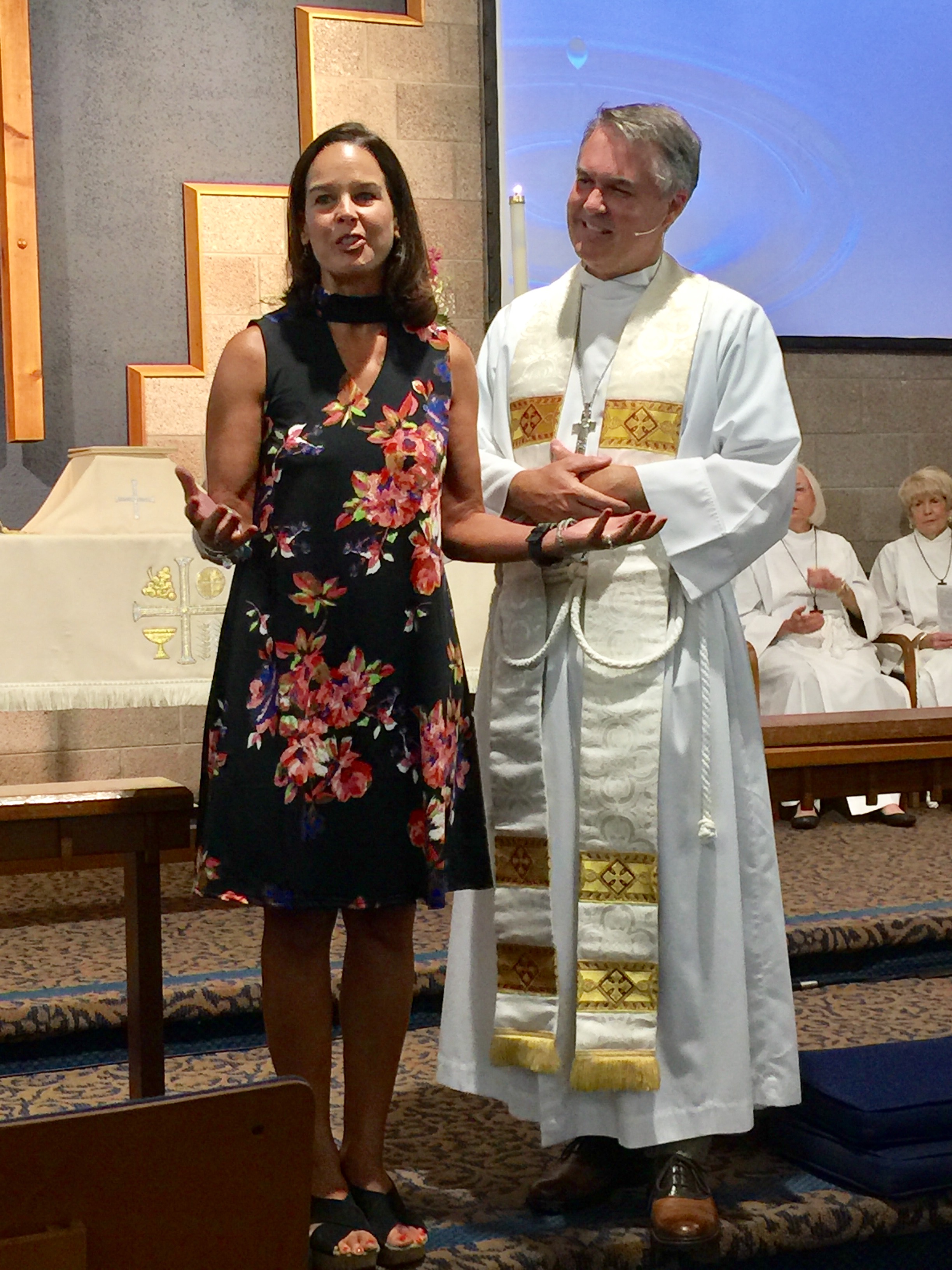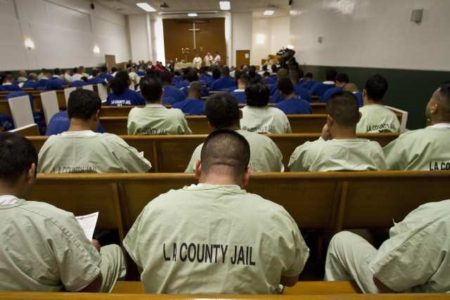When Savannah Guthrie of the TODAY show broke the story of co-host Matt Lauer’s sexual misconduct and abuse in the workplace, she acknowledged her pain with tears and words:
How do you reconcile your love for someone with the revelation that they have behaved badly? And I don’t know the answer to that.
I appreciate the honest vulnerability of her question. Whenever someone behaves badly, the hurt caused by their actions spreads far and wide. Private immorality always has public consequences—the collateral damage of sin. In the case of Matt Lauer, the collateral damage caused by his sin has already spread far and wide, and will likely spread farther.
Ms. Guthrie then added,
But I do know that this reckoning that so many organizations have been going through is important, it’s long overdue and it must result in workplaces where all women—all people—feel safe and respected.
Indeed, a reckoning is long overdue. The statistics on sexual abuse in the United States are staggering and heartbreaking:
- One in four women and one in six men will be sexually assaulted in their lifetime.
- Sexual assault is the violent crime that is least often reported to law enforcement officials. A 2000 study from the Bureau of Justice Statistics found that only 28% of victims report their sexual assault to the police.
- Only about 2% of all sexual assault accusations reported to police turn out to be false. This is the same rate of false reporting as other types of violent crime.
Of course, there are false accusations that are made. But with the release of Matt Lauer’s statement on the TODAY show, we know that, in his case, the charges are by-and-large true. Here is the full text of Mr. Lauer’s statement:
There are no words to express my sorrow and regret for the pain I have caused others by words and actions… To the people I have hurt, I am truly sorry. As I am writing this I realize the depth of the damage and disappointment I have left behind at home and at NBC.
Some of what is being said about me is untrue or mischaracterized, but there is enough truth in these stories to make me feel embarrassed and ashamed. I regret that my shame is now shared by the people I cherish dearly.
Repairing the damage will take a lot of time and soul searching and I’m committed to beginning that effort. It is now my full-time job. The last two days have forced me to take a very hard look at my own troubling flaws. It’s been humbling. I am blessed to be surrounded by the people I love. I thank them for their patience and grace.
As far as statements of regret and confession go, this one has much to commend as a start. There is some honest admission of wrongdoing and the expression of a desire to take personal responsibility for that wrong. I pray for him, that God will help him do the hard work needed to repent and recover from these sins, as well as for the recovery and restoration of his victims.
However, as an object lesson in confession, there are places where his statement falls short. I take Mr. Lauer at his word that he has a long road ahead of him of “soul searching” and “repairing the damage,” so this is just the beginning of his own personal reckoning with God and the people he has hurt. But with any statement of apology, there are vital components that need to be included—and here we can learn something for our own confessions.
The Seven A’s of a Good Confession
As a priest, I have often been called upon to hear confessions, make confessions, and work to bring about the reconciliation of parties through confessions. One tool that I have found to be very helpful in evaluating confessions and helping people make believable and effective confessions comes from Ken Sande’s book, The Peacemaker. Sande outlines the Seven A’s of a good confession:
- Address everyone involved (all those whom you affected).
- Avoid “if,” “but,” and “maybe” (do not try to excuse your wrongs).
- Admit specifically (both attitudes and actions).
- Acknowledge the hurt (express sorrow for hurting someone).
- Accept the consequences (such as making restitution).
- Alter your behavior (change your attitudes and actions).
- Ask for forgiveness.
The more egregious the sin, the more important it is to do a good job hitting all seven of the “A’s”. Let’s evaluate Mr. Lauer’s statement using the Seven A’s as a test.
Address everyone involved (all those whom you affected)
There are no words to express my sorrow and regret for the pain I have caused others by words and actions… To the people I have hurt, I am truly sorry. As I am writing this I realize the depth of the damage and disappointment I have left behind at home and at NBC.
Mr Lauer makes an attempt at the first “A” of a good confession here. But what is notably lacking is any specific reference to the victims themselves. While he does use the catch-all phrase, “to all the people I have hurt,” he then qualifies that statement by specifically naming “home” and “NBC.” What about his victims?
When we are caught in sin, often our first and biggest regret is over the consequence of the sin more than the actual commission of the sin. This is subtle, but we mainly regret getting caught and the consequences that we must now face (in Lauer’s situation, marital problems and loss of a job) rather than the fact that we sinned grievously (abuse of power, sexual harassment, and adultery). Mr. Lauer is “early days” in coming to terms with his accountability. The more he looks in the mirror honestly (if he can do that, with God’s help), he will see that his sin was a heinous violation of the women who were victims of his abuse of power and influence.
It was also a grievous violation of God’s call to covenant faithfulness in marriage, by the breaking of God’s law against adultery and covetousness. This sin, as he has begun to acknowledge, has caused real damage to his own wife and family.
Avoid “if,” “but,” and “maybe” (do not try to excuse your wrongs)
Mr Lauer struggles here when he says:
Some of what is being said about me is untrue or mischaracterized, but there is enough truth in these stories to make me feel embarrassed and ashamed.
While the trauma experienced by victims can sometimes lead to an exaggeration of the facts, by this statement Lauer discounts his victims’ charges off the bat. In order to be helpful, a confession must be believable. When we qualify a confession with “if’s,” “but’s,” and “maybe’s,” we let ourselves off the hook from bearing the full responsibility of the pain we have caused. Mr. Lauer should have left out this qualifying statement. If there was enough truth in the stories, then there was enough to simply express wrongdoing without qualification or rationalization.
Admit specifically (both attitudes and actions)
Here is a real weakness that ties into the previous point about believability. A good confession admits specifically the wrong that was done.
While Mr. Lauer refers to his “words and actions” that caused pain, he does not specifically mention how these words and actions were wrong. Using terms such as “adultery,” “abuse,” “sexual harassment,” or “moral impropriety” would have helped to convince his hearers that he actually “gets it” that he did something wrong—seriously wrong. When we make a confession, it’s helpful to remember that those receiving it know the details; we do not need to rehash them, but we do need to include enough specifics to demonstrate that we understand the pain we caused, rather than using blanket phrases such as, “the words I said,” or “my actions.”
Acknowledge the hurt (express sorrow for hurting someone)
Mr. Lauer does a pretty good job acknowledging the hurt and disappointment he caused his family and NBC. The area in which he could have done a better job is in acknowledging the hurt to the victims of his “words and actions.” We’ve already discussed using more specific terms of what he did wrong, but he also could have more specifically addressed those to whom he did wrong: the women whose boundaries he violated. Acknowledgement of the very real hurt to the very real victims of our sin is one of the hardest but most important aspects of a good, believable confession. (Given the litigious nature of our society, it’s probable Matt Lauer’s lawyers helped craft a statement vague enough to allow themselves room to defend him from the legal consequences of his actions.) This is one of the places where his confession could have been more believable.
Accept the consequences (such as making restitution)
Mr. Lauer’s commitment to repair the damage through soul-searching as a full-time job is encouraging. This is actually the best part of his confession:
Repairing the damage will take a lot of time and soul searching and I’m committed to beginning that effort. It is now my full-time job. The last two days have forced me to take a very hard look at my own troubling flaws. It’s been humbling.
He uses the words “repairing the damage” rather than “make restitution,” but this is essentially the same thing. That damage repair will be needed not only to his home and career, but also—very importantly—to the victims of the abuse. Few are willing to openly state that they are prepared to make such amends and restitution for fear of just how costly such a process might be—materially, emotionally, and spiritually. But abusive behavior has real costs; restitution, to the extent humanly possible, should be offered and made. Lauer’s willingness to make “repairing the damage” his full-time job gives us hope for his future, hope that he will receive a measure of grace.
Alter your behavior (change your attitudes and actions)
Matt Lauer makes a good beginning here by soberly acknowledging the humility that has come to him by seeing his “troubling flaws.” The language of Step 4 in the 12 -Step Program to sobriety is helpful: “Make a searching and fearless moral inventory of ourselves.” To do a thorough job, this process takes a lot of time and soul-searching. With situations such as Mr. Lauer’s, such a process should be engaged in with the help of accountability partners, such as pastors or godly counsellors. It is not easy, but Matt Lauer is to be commended for his first steps.
Ask for forgiveness
The last “A” of a good confession is tricky. If we have not done an adequate job with the first 6 “A’s” of a confession, asking for forgiveness can feel inappropriate and even insensitive. It is probably best that Mr. Lauer left this part out because of the lack of specificity of this confession and the fact that it is too soon in the process for him to truly come to grips with the damage he has caused and the extent of the forgiveness being sought.
Ultimately, no amount of restitution can eradicate or pay for the violations against the dignity and personhood of another human being or against God’s holy law. Only Jesus accomplished such complete redemption through the ultimate sacrifice he made on the Cross. Matt Lauer will need to rely on the grace of God for help in his journey of restoration—as will his victims.


